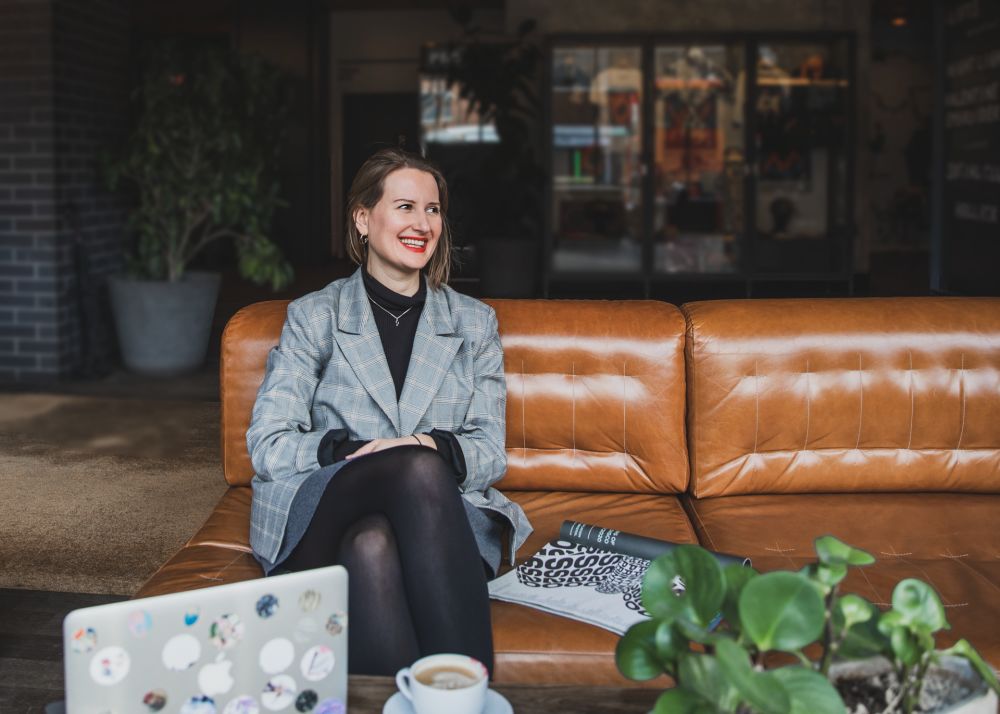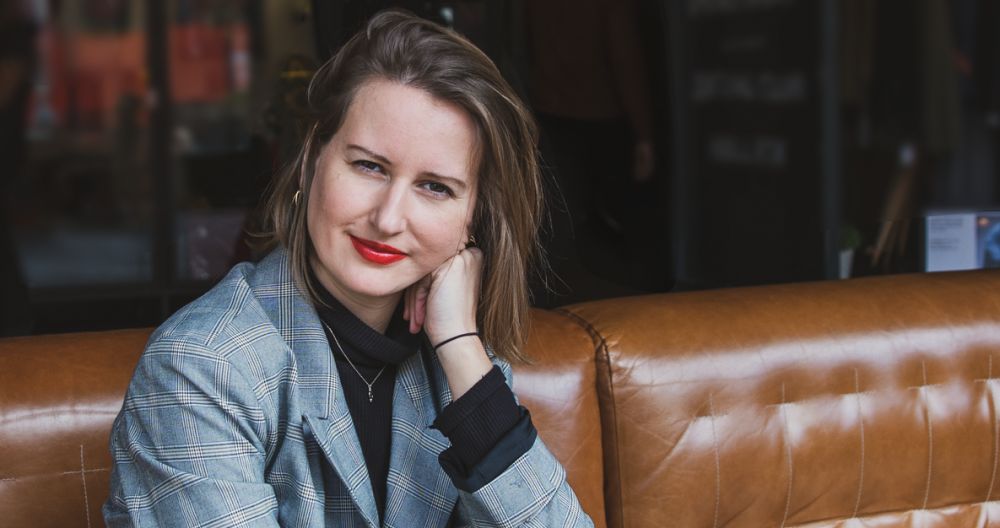What's it like to start an online business?

The UK’s e-commerce market is one of the largest in the world and according to Statista, by 2021, roughly 93 percent of UK internet users are expected to shop online. This presents a huge opportunity for entrepreneurs. And though it seems like it has never been easier to start selling online, what are the challenges that entrepreneurs should keep in mind when running an e-commerce business? We had a chat with a fashion and print designer Irina Kikina about her journey of starting her own brand, Kikina Designs, and how she navigates the ever-changing digital landscape.

Tell us about yourself and your business. What made you become an entrepreneur?
I was born in Moscow, Russia and for the past 10 years, I’ve lived and worked in London as a print designer and art curator. I’ve always searched for new ways to express my creative vision beyond my day-to-day job. So about 5 years ago I decided to start my own business that would allow me to do that and to collaborate with amazingly talented creatives in London and around the world. It started with silk scarves - I printed artworks on silk - and over time, it evolved to include other pieces, such as swimsuits, homeware and ceramics.
Did you have any reservations about starting a business – if so, what was your biggest one?
It is so easy to set up your business these days, which is great for people like me. However, it also means that the small business world is very competitive. It is crucial to find your niche and make sure that your proposition is viable for the audience.
My biggest reservation was the impact of production on the environment. Of course, as an entrepreneur, you want your business to be profitable, but I also felt the pressure to produce less, more sustainable pieces. When you find the right balance and things start to work out, it is extremely rewarding.
How and why have you started to sell online?
I started as an online business. It was pretty much the only option for a small business like mine that couldn’t afford to cover retail markups. I knew the price that was right for the product and my margins were not big enough to absorb that. The online world presents you with endless opportunities to reach your audience, find your business partners and collaborators. Social media was really important right from the start to tell my brand story as well as build a marketplace over time.
What are the benefits and downsides of having an e-commerce presence for a small business like you?
The benefits of e-commerce for a small business are huge. With a host of online platforms to help you build a website or join an existing platform and community of sellers, it is now easier than ever to set up an online shop these days. Having a digital business means that you can see exactly who your audience is, and where it comes from, which is an incredibly valuable insight.
Having said that, face-to-face contact with customers is also very important. You get a better idea as to why they love your product while getting their feedback. That is why I try to do at least 2 or 3 pop-ups throughout the year. It also gives me an opportunity to meet other creatives, exchange experience and sometimes find a collaborator.
What challenges have you faced along the way or what are the risks that your business might face?
The main challenge was production. Finding a reliable supplier with a consistent high-quality output was really challenging. My first collections were produced in the Middle East, purely on the grounds of cost-effectiveness. However, some time ago I found a production partner in London. I think, for a small business it is much more manageable and, to be honest, as an entrepreneur, I really believe in the idea of producing and buying locally as much as possible. My margin is smaller compared to producing overseas, but so is the carbon footprint of my collections - and that’s what matters to me the most.
Another challenge is to keep the high standards of ethical production. I only work with sustainable materials. Finding a production partner with similar values definitely takes time, but it’s totally worth it. I am trialling a few suppliers in London at the moment who work with digital print on organic and recycled fabrics.
Still, the risk of something going wrong in production and leaving me with no stock at a crucial time is real. Another high risk would be my website going down, meaning I would be losing sales and revenue. Retail goes through seasonal cycles, and for a small business like mine, business interruption can be highly damaging. If I can’t sell my product at the right time, how will I fund my next production run?
I also once got into an IP dispute with another person who challenged our business name. It was very tough emotionally, as we already had some presence in the market, but luckily, we settled everything peacefully. Phew! What if it went the other way?

What advice would you give to a startup entrepreneur taking their first steps?
The main advice I would give to anyone who’s thinking about starting a business - start early! If you have a burning business idea, just get out there and explore how you can make it happen. It is amazing how things start to fall into place when you commit to it.
To test your idea, think of yourself as part of a community. What’s missing, what problem are you trying to solve?
And the last piece of advice that you might have heard a million times: if you really believe in your idea, and you have a small audience who supports it, don’t give up :)
In your opinion, what are the common mistakes founders make?
I would say that you need to be very wise with your budget. It is easy to get excited and start spending money on things that are not crucial to get your business off the ground. For example, an expensive PR or design agency, custom packaging and other things like that. You can do so much using resources available online, or with the help of your friends, or exchanging skills with others. When deciding how to spend your money, always try to think, ‘How can I hack it?’ For example, instead of paying a famous blogger to promote your product, find someone who you share an audience with, and create a product exchange. Get your idea out into the world, start testing and improving it.
Another piece of advice is to stay ahead of the game and always think about what comes next. With things moving so quickly these days, you need to stay on top of trends, evolve your product, channels and communications.
What makes you different in the market?
My art background allows me to explore how traditional painting techniques and centuries-old art and design can be reinterpreted in new ways and brought into the fashion world. Slow fashion is becoming more and more prominent, but right from the start, I was passionate about producing unique, sustainable pieces, rather than chasing trends. Being part of the London community is really important to me and I'm certain that customers really appreciate that my pieces are made locally.
This content has been created for general information purposes and should not be taken as formal advice. Read our full disclaimer.



